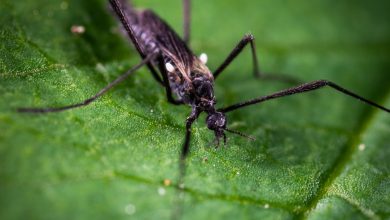How to Become a Master Gardener

Training is necessary to become a force in any profession. Gardening isn’t an exception to this reality. Hence, the desire to become a Master Gardener requires more than the willingness to soil your hands with earth particles. Training in the science and art of gardening is a requirement for achieving this dream.
This condition exists because the essence of bearing the Master Gardener title is to be fit to voluntarily transfer the wealth of knowledge acquired during your horticultural training to other gardeners around you. It’s also to provide due assistance to the gardening population wherever you find yourself.
Therefore, it’s right for you to familiarize yourself with the steps required to achieve your desire to become a master gardener. Before that, here’s a background of the Master Gardener Program.
Background of the Extension Master Gardener Program
The basis of the EMG program was to meet the upsurge in demand for city horticulture and gardening knowledge.
The success of the first EMG program in Washington, United States, gave way to the full establishment of the program. It also led to the formulation of a syllabus and horticultural training.
Following this development, other US states and provinces in Canada began establishing this program.
Master Gardeners disseminate information and transfer their knowledge to the gardener community in the following ways.
- Phone calls
- Email helplines
- Public speaking
- Publications
- Partnership with other community programs, gardens, and educational institutions
There are active Master Gardeners in all the states in America and eight provinces in Canada. There are also awards of recognition for Master Gardeners for their immense contribution to their community.
Having gotten a brief background of the program, here’s how to become a certified Master Gardener.

How to Become a Master Gardener
Enroll in a Certified Extension Master Gardener (EMG) Program
A good number of the countries in the North and South American continents run an Extension Master Gardener (EMG) program. This program aims to make participants undergo practical training in horticulture. By so doing, they can disperse vital knowledge gotten to their counties to foster a more informed community of gardeners.
The program brings gardeners to the understanding of the climate and vegetation in their geographic area.
It’s worthy to note that various state land-grant universities are responsible for the coordination of the EMG program.
In situations where an aspirant can’t locate any EMG in their area, there are alternatives for such aspiring master gardeners. Therefore, we advise you to keep searching for other proximal EMGs.
Upon finding an EMG, aspirants must be willing to carry out the mandatory 40-hour volunteer gardening education project for them to participate.
Request More Information About the Program
It’s not enough to acquire general knowledge about the EMG programs. Serious potential participants should go on to ask for precise information about the program. The different EMG programs vary in fees, syllabus, strategies, and conditions. Therefore, it’s essential to reach out to the program’s agent and request for particular information about the plan that’s of concern to you. Directly relay your questions to them if you have any.
Go to your selected EMG program. You’ll find their contact information and location address. With the data, you can successfully reach your preferred EMG program. Also, there’s the contact information of the program’s agent, which you may find useful.
Submit a Request for the Program
There are diverse EMG programs, and on that basis, the commencement and deadline for application vary. However, their application forms are downloadable and printable from the website. In a situation where your internet connection isn’t reliable, you can visit your chosen EMG address and request for their application form.
You can find the deadline of the application either on the form, their website, or their physical address.
There’s no need for prior experience or knowledge to get admitted into the program. The sole prerequisite for participation is an earnest desire to gain horticultural knowledge and skills and the willingness to disseminate information acquired in the program.
Lastly, fill in the space provided in the application to show your interest in the program. Go through your answers before you finally submit your application form.
Get Admitted Into the Program
You can confirm your admission into the program when the delegated staff at your EMG program office reaches you. Admitted participants get a package with more information and guidelines about the program. You may also have to provide additional information on other documents and pay a fee for participation.
The numbers of admitted participants are quite different from one EMG program to another. The uniqueness is due to location. Programs carried out in metropolis or universities have the capacity and amenities to admit more participants who total up to 50. However, satellite programs done in villages or less populated towns will only accept a few participants about ten or thereabout.
Call or email your program office for more information on the population size of your EMG program and acceptance rate. Upon admission into the program, you may inquire about a need-based scholarship.
To maintain your spot, do the needful on time, like submitting required documents and paying the compulsory fee.
Assessment of Your Background Check
A Master Gardener is in the position to work with several people. The EMG program demands admitted participants to fulfill a background check to guarantee the safety of these people under the leadership of the Master Gardener. If you’re able to meet the requirement, you’ll get an official admission from your selected EMG program.
Fulfilling the Master Gardener Program
Minimize Your Absence
Avoid missing classes during the program, even though a little absence is barely consequential. In the beginning, you’ll undergo an intensive mandatory course that’ll give you the necessary knowledge and training you need to become a volunteer. Your presence during these core courses is non-negotiable. Otherwise, you stand the risk of being dismissed.
Take the Core Courses
All EMG programs, though in different countries, have a similar core training syllabus. These courses tally with the state’s climate and topography. Participants are to attend core training for almost one to three days. The areas of discussion would be pest and pesticide identification, soil management, cultivating fruits and vegetables, lawn care, and plant nutrition.
Volunteer to Work in Your Immediate Community
It’s the responsibility of every Master Gardener to advise, inform, and help members of their population. A budding Master Gardener is, therefore, to perform volunteer duties in the course of the program. This volunteer activity may last for two to three days. If you’re uncomfortable doing volunteer work, you have the opportunity to undergo a pro-hort trainee course at a given rate.
You may volunteer in areas like leading a child or adult educational program, operating an information booth at a fair or farmers’ market, answering gardening questions via hotline or email, organizing and running educational conferences, and working at a community garden.

Become a Certified Volunteer Master Gardener
Once participants satisfy all the requirements of the program, they’ll obtain a certificate of completion to this effect. The certification validates your title and responsibility as a volunteer Master Gardener. The document will be due for renewal year after year.
Be Committed to the Master Gardener Program
Attend Classes for Training and Improvement
Getting the certificate doesn’t wrap the program. Certified volunteers must continue to attend horticultural classes to improve their knowledge. The number of courses to attend is peculiar to your program. To validate your attendance, you’re to record your entire training activity and the duration. After this, you make it available to your immediate extension office by the end of the year.
In the situation where you’re renewing your certificate for the first time, you may have to volunteer for more educational hours. With time, the duration you spend volunteering may reduce.
Go for EMG Events
Certified Volunteer Master Gardeners are to attend the annual gardening confluences and events. These meetings offer both old and new Master Gardeners the opportunity to form bigger networks and gain broader knowledge. Master gardeners are to participate in these confluences adequately.
On becoming a Master Gardener, there are advantages that gardeners get to enjoy, and by extension, their community.
Benefits of Becoming a Master Gardener
Below is a list of benefits that come with becoming a Master Gardener:
- It enhances your leadership ability.
- It widens your problem-solving capacity.
- It makes you produce original ideas in your community.
- It offers an opportunity to meet a network of people of similar interests.
- It replaces poor gardening practices with good ones.
- It helps volunteers make a difference in their respective communities.
- It increases horticultural knowledge and skill in the gardeners’ community through individual or group teaching.
- It stimulates new ideas for your garden.
- It enables you to acquire advanced technical skills in gardening.
- It helps you to generate timely gardening information for your community.
- It gives room for acquiring more knowledge on plants, soil, and horticulture.
- It teaches knowledge and skills that advance society.
- It fosters community growth and advancement.
- It equips Master Gardeners for any type of volunteer work.
- It confers social privileges and merits for productive effort.
- It enhances individual independence.
- It bestows honor upon a Master Gardener in the community.
With the above guide, you can take practical steps to become a Master Gardener and avail yourself of the opportunity to transform your garden into a more beautiful place full of healthy plants. Even more than that is the opportunity to widen the knowledge and skill of your community of gardeners. So it’s a decision worth taking for personal and societal good.



